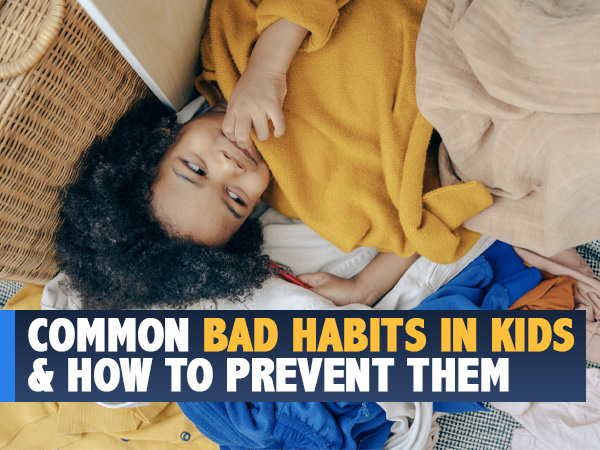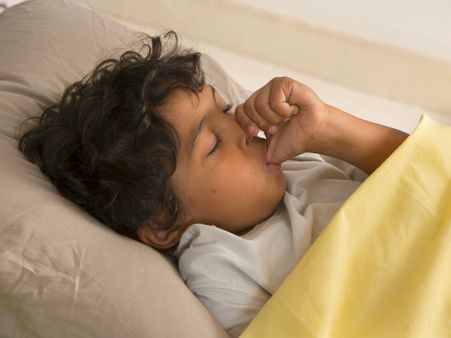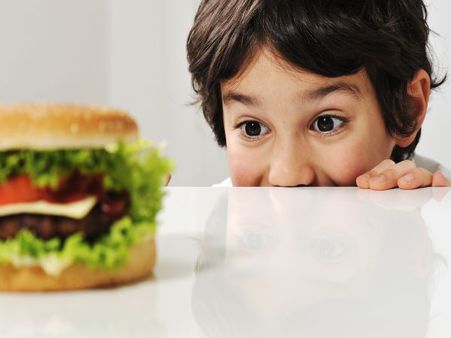Just In
- 18 min ago

- 7 hrs ago

- 16 hrs ago

- 18 hrs ago

Don't Miss
- Finance
 1:10 Split Coming Up: Crorepati FMCG ITC Turns Rs 1,50,000 To Rs 1.2 Crore; Makes Big Announcement; BUY?
1:10 Split Coming Up: Crorepati FMCG ITC Turns Rs 1,50,000 To Rs 1.2 Crore; Makes Big Announcement; BUY? - Sports
 Pakistan vs New Zealand Playing 11: PAK vs NZ 4th T20I Team News, Predicted Lineup And Other Details
Pakistan vs New Zealand Playing 11: PAK vs NZ 4th T20I Team News, Predicted Lineup And Other Details - Education
 JEE Main Result 2024 Out, Telangana's 15 Toppers Shine, Check Statewise List of 56 Candidates with Perfect 100
JEE Main Result 2024 Out, Telangana's 15 Toppers Shine, Check Statewise List of 56 Candidates with Perfect 100 - News
 Mangalsutra Row: Did Indira Gandhi Donate Gold During The 1962 War? The Facts Behind Priyanka's Claim
Mangalsutra Row: Did Indira Gandhi Donate Gold During The 1962 War? The Facts Behind Priyanka's Claim - Movies
 Kota Factory 3 OTT Release Date, Platform: When Will Jitendra Kumar's Web Series Premiere On Netflix?
Kota Factory 3 OTT Release Date, Platform: When Will Jitendra Kumar's Web Series Premiere On Netflix? - Travel
 Escape to Kalimpong, Gangtok, and Darjeeling with IRCTC's Tour Package; Check Itinerary
Escape to Kalimpong, Gangtok, and Darjeeling with IRCTC's Tour Package; Check Itinerary - Technology
 OPPO Find X7 Ultra Camera Deep-Dive: Pushing the Boundaries of Photography on a Smartphone
OPPO Find X7 Ultra Camera Deep-Dive: Pushing the Boundaries of Photography on a Smartphone - Automobiles
 Aston Martin Vantage Launched In India At Rs 3.99 Crore
Aston Martin Vantage Launched In India At Rs 3.99 Crore
10 Common Bad Habits In Kids And Tips To Prevent Them
Kids often develop bad habits or behaviours at a very tender age, while some go away with time and the others remain. Nail biting, nose picking, thumb sucking and hair twirling are the most common bad habits that kids have which parents find many of them annoying. These bad habits are often just a coping mechanism for stress, boredom, unhappy, tired, frustration or insecure or kids may do it because it simply gives them pleasure.

A bad habit is a repeated pattern of behaviour that may not be socially appropriate. And usually, most of the time kids aren't even aware that they are doing it. The bad habits may not be worrisome for the child but it can bother or even cause a worry for parents. And as parents, you will find ways to change the unwanted habits as early as possible, but remember yelling, punishment and calling attention to the bad habit don't usually work to stop the behaviour instead, it may even increase it.
So, the best way to help your child get rid of the bad habits is to address the problem in a positive way and have patience in preventing them.
Read on to know the common bad habits in kids and tips to prevent them.

1. Nail biting
Nail biting is one of the most common childhood habits and it is estimated that 28 to 33 per cent of children between 7 to 10 years of age bite their nails. The causes of nail biting could be due to several reasons such as stress, imitating other family members, heredity, poorly manicured nails and transference from the thumb sucking habit [1].
Prolonged
nail
biting
can
lead
to
bacterial
infection,
damage
to
the
nails
and
cuticles
and
dental
problems.
Tips
to
prevent
it:
- If nail biting is due to stress, try to address the problem.
- If nail biting isn't due to stress, you can apply nail polish or try to engage them in paper crafts where their hands will be constantly working.
- If your child is older, explain them that why they shouldn't bite their nails and what complications it may lead to.


2. Hair twirling
Hair twirling is a common habit seen in girls and they most often do it when they are bored, tired or relaxed. Hair twirling can lead to minimal hair loss. Usually, kids outgrow this habit when they grow old and for those who don't simple behaviour modification can help them stop the habit [2]. However, if kids continue to twirl their hair even when they grow old, then it could be a sign of depression, anxiety or obsessive compulsive disorder (OCD).
Tips to prevent it:
- Engage your child in interesting activities so that they do not get bored.

3. Nose picking
Nose picking is another common habit in children. Parents find this habit the most annoying because it is one of the least socially acceptable habits. Also, continuously nose picking can cause an injury to the delicate tissues of the nose, resulting in bleeding from the nose [3].
Tips to prevent it:
- Gently tell your child that nose picking is a bad thing and encourage them to use a tissue.
- You can also put on hand gloves to prevent them from picking their noses.
Image ref: Parenting first cry


4. Thumb sucking
Thumb and finger sucking typically starts in the first few months of a child's life. However, many children outgrow this habit when they tend to grow older between two to four years of age. Thumb sucking has a soothing, calming effect and often helps children go to sleep. But, frequently thumb sucking can lead to dental problems, thumb or finger infections and dryness of the skin [4].
Tips to prevent it:
- If your child is older explain why the habit is bad and offer them praises and rewards whenever they stop doing it.
- Keep your child busy in interesting activities.
- You can try applying some juice on the thumb extracted from vegetables which are bitter in taste. This can stop them from sucking their thumb.

5. Head banging
Head banging is another common bad habit that usually begins when a child is nine months old and resolves around the age of two. Head banging refers to when a child repeatedly hits their head against a solid object such as a crib. This can be distressing for the parents as it can cause injury to the child. Most children do this habit as it offers comfort and releases their frustration.
Tips to prevent it:
- If stress is the cause, addressing the problem is the best way to deal with this habit.

6. Teeth grinding
Half of all infants of normal development have the habit of teeth grinding or bruxism. Teeth grinding begins at the age of six months when the baby teeth start growing and again at the age of five when the permanent teeth have set. Teeth grinding mainly occur during sleep. While most children outgrow this habit, it may continue till adulthood. Teeth grinding can become a cause of concern when permanent teeth have set in and can cause dental problems or a disorder of the jaw joint [5].
Tips to prevent it:
- Regular dental check-ups can help prevent teeth damage.


7. Lip biting or sucking
The most common reasons of lip biting or sucking are dry lips, stress or misalignment of teeth. Continuous lip sucking or biting may result in red, swollen lip and skin around the mouth [6].
Tips to prevent it:
- Apply lip balm or petroleum jelly to treat dry or chapped lips.
- During a stressful situation, divert your child's attention.

8. Touching private parts
Children love to touch and explore their body parts and sometimes they tend to explore their genitals as well. They feel comfort when they touch their genitals, but when they do it in public it can be quite embarrassing.
Tips to prevent it:
- Educate your child about body parts.
- Distract the child when they are doing it in public.
Image ref: smartparenting

9. Bad eating habits
Some children have the habit of snacking or munching the whole day and as a result, they do not feel hungry during mealtimes. Untimely snacking habit can lead to obesity in children.
Tips to prevent it:
- Set a time schedule for meals.
- Offer your child healthy and nutritious snacks to stop them from consuming junk food.

10. Lying frequently
Children often lie to escape from punishment or to get something they want. Children can learn to lie from an early age, usually when they are around three years.
Tips to prevent it:
- Encourage your child to tell the truth and teach them the importance of honesty.
-
 lifeIn Your 20s? 12 Things That You Should Not Continue Doing Any More
lifeIn Your 20s? 12 Things That You Should Not Continue Doing Any More -
 skin care12 Bad Habits That Are Ruining Your Skin
skin care12 Bad Habits That Are Ruining Your Skin -
 wellness10 Worst Habits That Can Wreck Your Teeth
wellness10 Worst Habits That Can Wreck Your Teeth -
 wellnessRead This! 10 Bad Habits That Can Kill You
wellnessRead This! 10 Bad Habits That Can Kill You -
 wellnessThe 10 Most Dangerous Bad Habits for Your Health
wellnessThe 10 Most Dangerous Bad Habits for Your Health -
 wellnessStop Doing These! 10 Bad Habits That Are Failing You
wellnessStop Doing These! 10 Bad Habits That Are Failing You -
 wellnessList Of Bad Habits Or Addictions & How To Break Them
wellnessList Of Bad Habits Or Addictions & How To Break Them -
 diet fitnessBad Habits That Keep You From Running
diet fitnessBad Habits That Keep You From Running -
 wellnessWorst Habits That Women Must Immediately Stop Following
wellnessWorst Habits That Women Must Immediately Stop Following -
 wellnessHow To Break The 7 Worst Health Habits That You Are Addicted To
wellnessHow To Break The 7 Worst Health Habits That You Are Addicted To -
 wellnessWorld Liver Day 2018: 10 Everyday Habits That Damage The Liver
wellnessWorld Liver Day 2018: 10 Everyday Habits That Damage The Liver -
 pulseFive Tips To Change Bad Habits
pulseFive Tips To Change Bad Habits


 Click it and Unblock the Notifications
Click it and Unblock the Notifications



